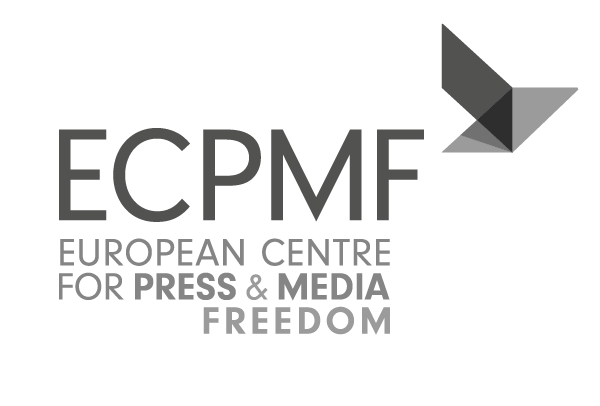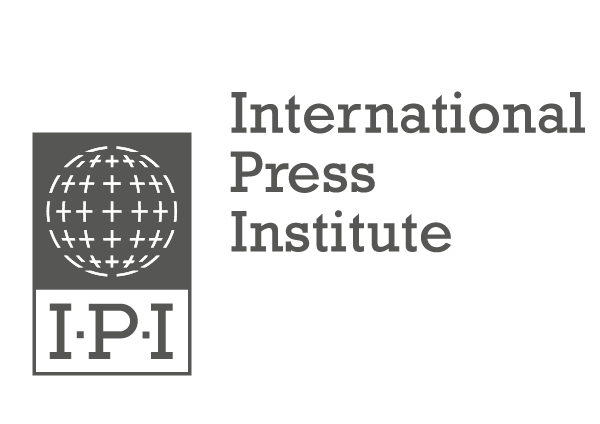by Jane Whyatt
Across Europe, governments are taking necessary steps to stop the spread of COVID-19. But some are exploiting the health crisis to repress critical questions and restrict journalists’ work.

Officials wear masks at an emergency meeting to discuss the corona crisis in Slovenia. Photo: Government of Slovenia Twitter
Meanwhile, disinformation and conspiracies are spreading unchecked in social media and online blogs. The European Centre for Press and Media Freedom (ECPMF) has issued a statement calling on Europe’s leaders to respect the right of journalists to do their jobs unhindered, so that citizens can continue to receive up-to-date and fact-checked information.
The Czech Republic
This comes after several repressive moves by European states, starting with the Czech Republic, where Prime Minister Andrej Babis restricted the number of journalists who were allowed to enter a press conference. Freelance journalist Lucie Sykorova, chair of ECPMF’s Supervisory Board, is based in the Czech Republic and raised concerns about possible political interference to stifle critical questions, by limiting the number of persons at a press conference under the guise of preventing transmitting the virus.
Spain
Meanwhile in Spain, where the incidence of Coronavirus cases in Europe, is second highest after Italy, the Royal Decree Number 463/2020, of 14.March was denounced by ECPMF’s partner organisation Plateforma por la Difensa di Libertad del Informacion (PDLI). Citing legal expert Joan Barata from Stanford University, the PDLI expressed concern that the decree enables the state to insert its own messages into all news media outlets, including movie streaming and videos on demand. Barata maintains that this can be allowed under Article 10 of the European Convention on Human Rights (freedom of expression) only under certain circumstances as follows:
“A provision of this nature is only acceptable as a limit to freedom of expression and information (even in the context of the state of alarm) if a series of circumstances occurs:
a) The messages are genuinely public service because they provide necessary information to the citizen that cannot be effectively disseminated in any other way (or that requires the complementary use of this mechanism).
b) For this reason, the messages disseminated cannot consist of mere institutional advertising, messages of a purely political or partisan nature, or pure and simple propaganda from the authority on duty.
c) In the event of non-compliance with this obligation, the sanctions must always be proportional to the circumstances of the corresponding media, to its resources and capacity to comply with the requirement received.”
Slovenia
A smear campaign has started against government critics in Slovenia, targeting investigative journalist Blaž Zgaga, the poet Slavoj Žižek and the philosophers Boris Novak and Darko Štrajn. It appears to have been prompted by Zgaga’s Freedom of Information request relating to emergency meetings of the National Security Council and its anti-corona operations.
Italy
In Italy, a state of lockdown continues but the Rome-based observatory Ossigeno per l’informazione continues to monitor violations of press and media freedom, including restrictions imposed by governments on freedom of expression.
Some positive news for media workers
France
However, there are also positive moves to blunt the impact of the virus on journalists’ work. In France, shops that sell newspapers are among the few that are allowed to stay open. This helps to guarantee an income for those who are employed in the mainstream media.
Germany
The German Culture Ministry has opened a special fund for freelancers, including artists, musicians and other creative workers as well as journalists.
“We won’t leave workers in the cultural industries to face this alone,” says Culture Minister Monika Grütters. Furthermore, the journalists’ union DJV (Deutscher Journalisten-Verband) is offering advice to freelancers on how to survive.
At the European level, the European Federation of Journalists (EFJ) is also trying to protect non-standard workers and all trade union members who are struggling to get paid during the crisis. The EFJ urges all governments to offer payment to those who are quarantined, suspended or made redundant because of the COVD-19 outbreak. The Federation urges:
“Particular attention must be paid to precarious and non-standard workers (including freelance journalists), who are often excluded from the same rights and protections as other workers.”
Focus on truth
The wave of disinformation about corona currently flooding Ukraine’s media and social networks is described by the Kiyv Post as ‘mainly originating from Russia’. It is especially damaging in a country where trust in the health system and in mainstream media is low. ECPMF is co-operating with a local partner in a media literacy project, re:start democratic discourse, aiming to help grassroots local reporters to resist censorship and counter propaganda by producing quality journalism.
Obliged to stay indoors by the corona pandemic, the Brussels-based media literacy campaign Lie Detectors is developing new ways to deliver its unique workshops online to school and college teachers. In normal times, the Lie Detectors bring local journalists and media specialists into classrooms to deliver interactive lessons on how to spot fake news, verify facts and photos and de-bunk conspiracies. With schools closed, they are moving online to train the trainers at a time when critical thinking skills are needed most. Lie Detectors is a partner organisation of ECPMF. It is a non-profit funded independently by the Wyss Foundation.





